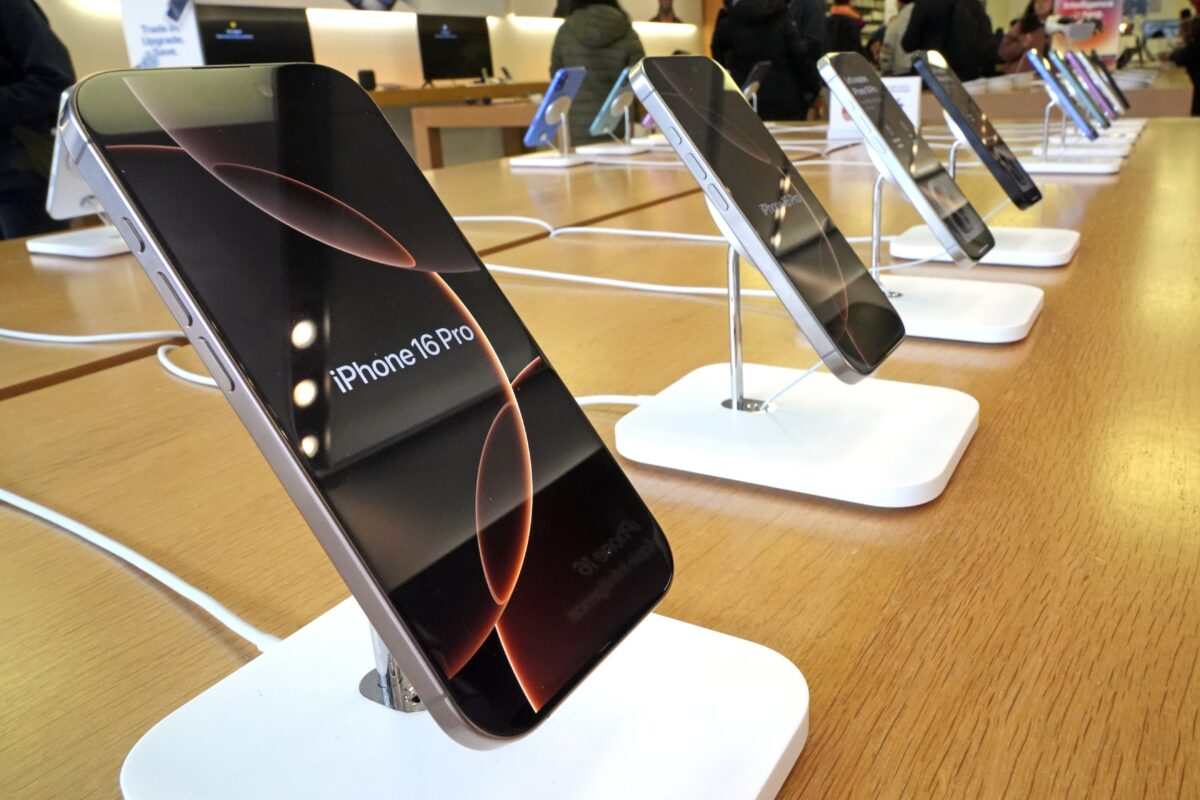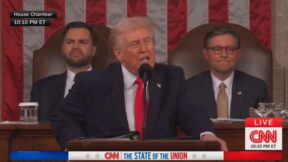Apple Planning to Move iPhone Assembly Out of China in Response to Trump’s Tariffs — But Still Not to the U.S.

AP Photo/Gene J. Puskar
Since President Donald Trump rolled out his tariffs earlier this month, he has defended them as a necessary step to bring manufacturing back to America. Apple is now reportedly planning to move its iPhone assembly out of China — but still isn’t bringing it to the U.S.
On April 2, Trump held a press conference in the Rose Garden to sign an executive order imposing sweeping new tariffs on virtually all imports. Multiple Republicans and some of the president’s staunchest defenders on Fox News have spoken out to criticize the tariffs as causing unnecessary economic harm.
It’s been a roller coaster ride for markets, investors, and both U.S. and foreign businesses, as the list of countries — and aquatic flightless birds — subject to the tariffs has changed on a seemingly daily basis, along with the rates and exemptions and other details, and government officials have scrambled to make the necessary adjustments.
Thus far, China remains subject to the most punishing new tariffs, and Apple’s dependence on both parts and assembly sourced from China led to $700 billion being knocked off Apple’s market value in the wake of the tariff rollout.
An article published Friday by the Financial Times reported that Apple was planning to move its production of all iPhones to be sold in the U.S. from China to India, possibly as early as next year, citing sources “familiar with the matter.”
According to FT, Apple sells more than 60 million iPhones annually in the U.S., which is about 28 percent of the more than 230 million it sold worldwide in 2024.
This move would mean doubling the tech giant’s current iPhone production in India, and reversing nearly two decades of major financial investments to build up a manufacturing line in China. Apple had been “steadily building capacity in India,” but the majority of its iPhones are assembled in China.
Trump’s tariffs would still have a significant effect on the final consumer price for iPhones, since it is still “heavily reliant on Chinese suppliers” for hundreds of component parts for its flagship smartphone.
New: The Mediaite One-Sheet "Newsletter of Newsletters"
Your daily summary and analysis of what the many, many media newsletters are saying and reporting. Subscribe now!






Comments
↓ Scroll down for comments ↓